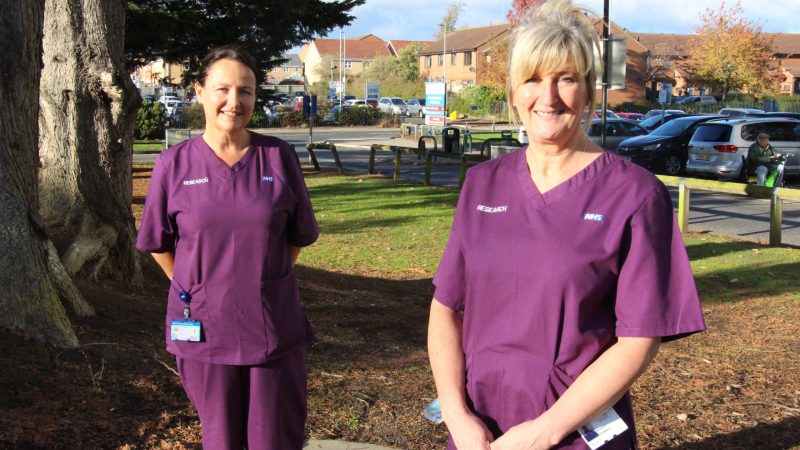
Mums-to-be are being advised that we are taking part in a maternity research trial to compare the effectiveness of different tests to identify Group B Streptococcus (GBS) in pregnancy.
Group B Streptococcus (GBS) is a common bacteria which usually lives in the body and causes no harm. However, women who are found to have GBS in their urine, vagina or rectum during pregnancy have a small risk of passing on the infection to the baby. Most babies will not become poorly but there is a small chance that a baby may become seriously ill.
During the research trial, the Trust will be sharing data on GBS infection levels with the GBS 3 Trial site. The data will be entirely anonymous and all women have the option to opt-out of the research.
What are the aims of the study?
Sharon Gowans, research midwife, said: “This maternity research is looking into how we can identify and treat GBS more effectively.
“We know we need a better testing process. And we believe that by sharing anonymous data on GBS infection rates and outcomes for mums and babies, we can assist in establishing new and improved testing procedures.
“We won’t be changing our clinical practices during the trial period, our testing strategy will remain as it is. But our strategy will be compared to other trusts within the trial who will be using different testing methods.
“The intention is that in the near future all trusts will be able to implement a new testing process to significantly reduce the chances of GBS infection in babies.”
Pregnant women will be informed of the research trial during their pregnancy. They will be given the option to opt-out of their anonymised data being shared.
On average in the UK, every month:
- 43 babies develop early-onset GBS infection
- 38 babies make a recovery
- Three babies survive with long-term physical or mental disabilities
- Two babies die from their early-onset GBS infection
